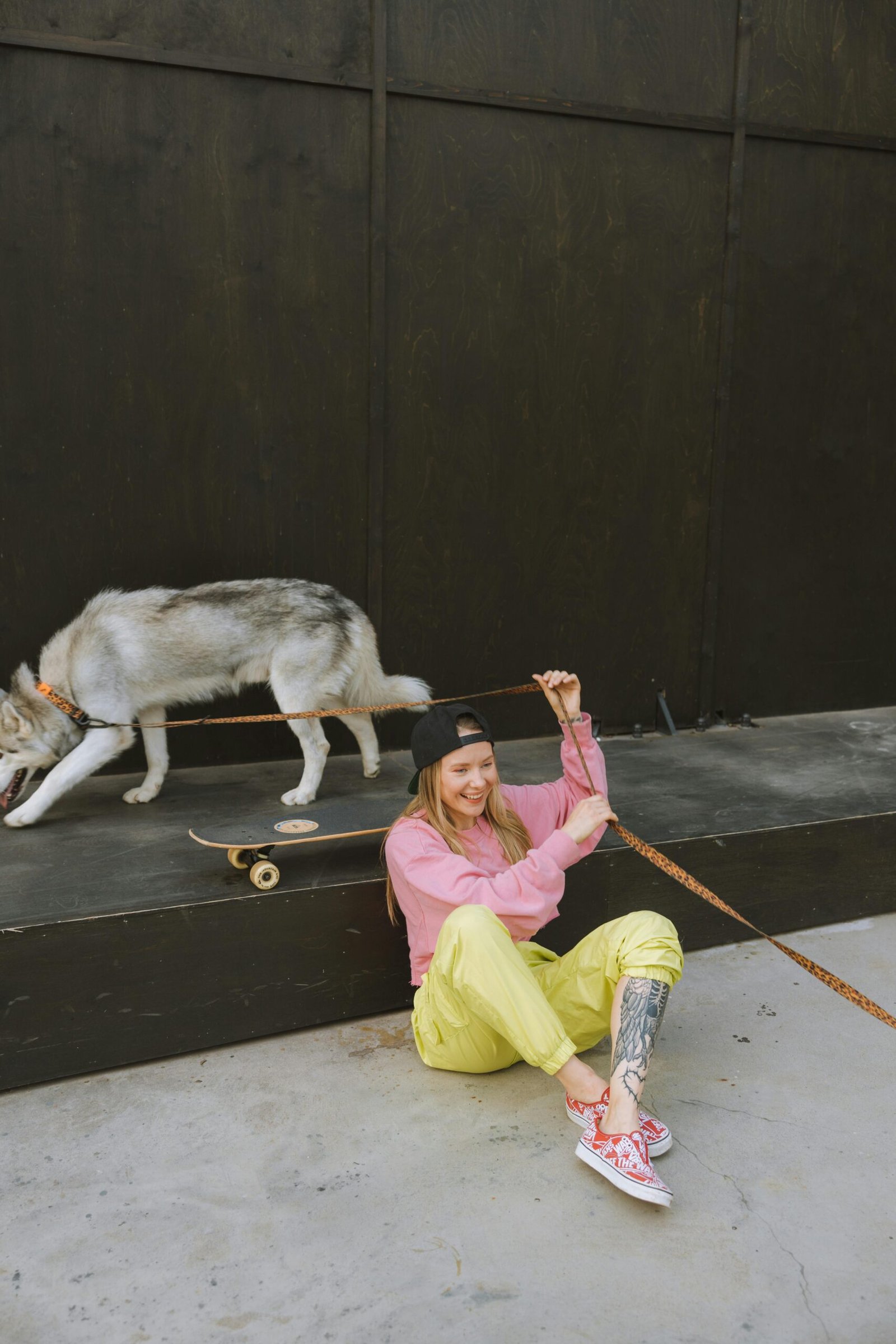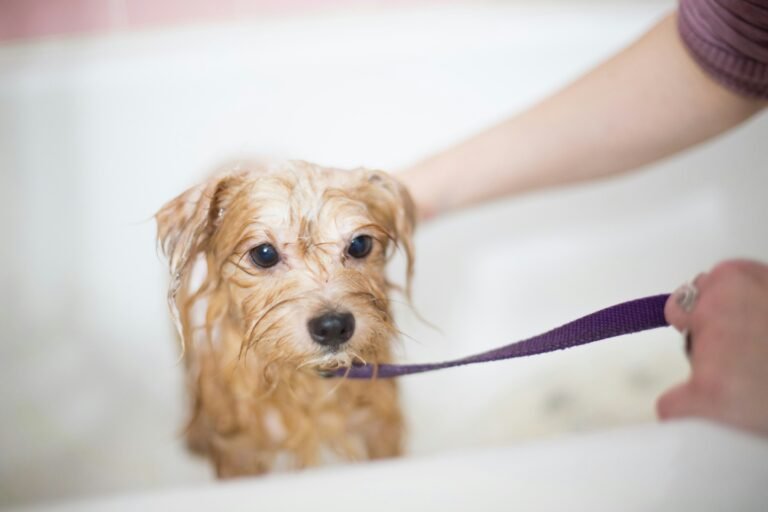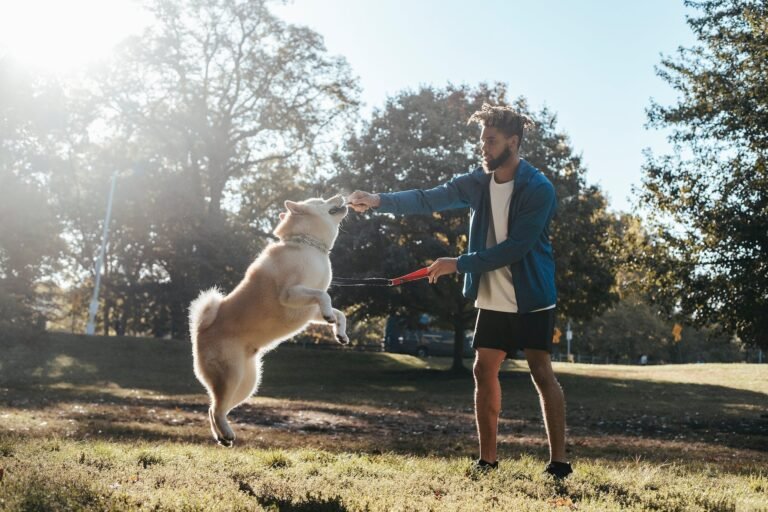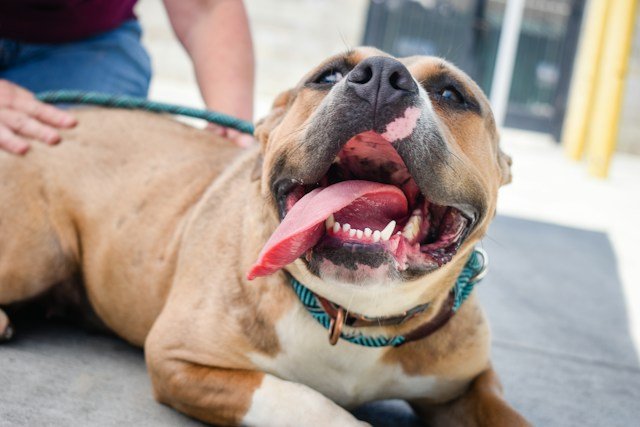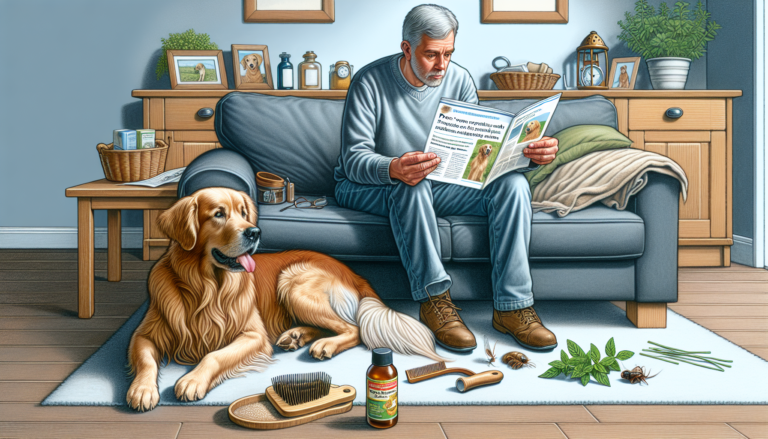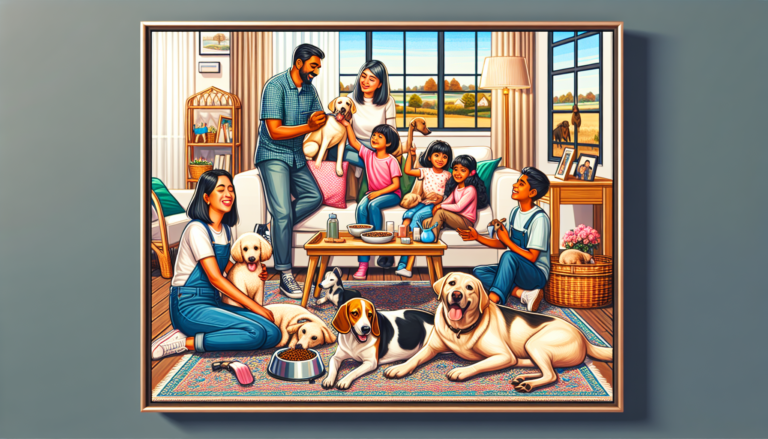Most Popular Dog Breeds For Allergy Sufferers
If you suffer from allergies but have always dreamed of owning a dog, there’s good news for you! In this article, we will explore the most popular dog breeds that are known to be more hypoallergenic and suitable for allergy sufferers. From the loyal and affectionate Labradoodle to the adorable and intelligent Poodle, you’ll discover a range of breeds that can bring joy and companionship to your life without triggering your allergies. So, let’s jump right in and find the perfect furry friend for you!

Labrador Retriever
Description
The Labrador Retriever is a medium to large-sized dog breed known for its friendly and outgoing nature. With a strong, athletic build and a short coat, Labradors are easily recognizable. They have a broad head, prominent eyes, and floppy ears. Labradors come in three colors – yellow, black, and chocolate. They are well-known for their intelligence, trainability, and loyalty.
Allergen Levels
Labradors are not considered hypoallergenic, meaning they can produce allergens that may trigger allergies in sensitive individuals. However, compared to some other dog breeds, Labradors tend to have lower allergen levels. This is due to their short coat, which sheds moderately. Regular grooming and vacuuming can help reduce allergens in the home.
Temperament
Labradors have a reputation for being friendly and outgoing. They are known to be excellent family dogs, getting along well with children and other pets. Labradors are typically eager to please and enjoy being part of the family. They are often used as therapy and assistance dogs due to their gentle and patient nature.
Grooming Needs
Labradors have a short, dense coat that requires regular brushing to keep it looking its best. They are moderate shedders, so weekly brushing can help reduce the amount of loose hair in the house. Labradors are prone to ear infections, so regular cleaning and inspection of their ears is important. They also require nail trimming and dental care to maintain their overall health.
Exercise Requirements
Labradors are an active breed that requires regular exercise to stay happy and healthy. They love to swim, fetch, and play games, so providing them with ample opportunities for physical activity is essential. Daily walks, runs, or playtime in a fenced yard are recommended to meet their exercise needs. Labradors may become destructive or exhibit behavioral issues if they do not receive enough exercise.
Suitability for Allergy Sufferers
While Labradors may not be hypoallergenic, many allergy sufferers find that they can tolerate them well. The lower allergen levels and their easygoing nature make Labradors a popular choice for families with allergies. However, it is always advisable for individuals with allergies to spend time with a Labrador before bringing one into their home to ensure they do not have an adverse reaction.
Other Considerations
Labradors are known for their love of food and have a tendency to overeat if not monitored. This can lead to weight gain and potential health issues. Portion control and a balanced diet are crucial to keep Labradors in good shape. They are also prone to certain health conditions, including hip and elbow dysplasia, so regular veterinary check-ups are important. With proper care and training, Labradors make wonderful companions for both individuals and families.
Poodle
Description
Poodles are elegant and intelligent dogs known for their distinctive curly, hypoallergenic coat. They come in three sizes – standard, miniature, and toy. Poodles have a graceful appearance with a long, arched neck, alert eyes, and a curly tail. Their coat can be groomed in various styles, giving them a unique and fashionable look.
Allergen Levels
Poodles are often recommended for individuals with allergies as they are considered hypoallergenic. They have hair-like, non-shedding coats that produce fewer allergens compared to other breeds. However, it is important to note that no dog breed is completely hypoallergenic, and individual reactions may vary. Regular grooming and maintenance is still necessary to minimize potential allergens.
Temperament
Poodles are known for their intelligence and trainability. They are highly adaptable and versatile dogs, excelling in various activities such as obedience, agility, and even therapy work. Poodles are typically friendly, playful, and eager to please. They thrive on human companionship and can be affectionate and loyal family pets.
Grooming Needs
The unique coat of a poodle requires regular grooming to keep it in good condition. They have a dense, curly coat that requires brushing and professional grooming every 4-6 weeks. Poodles do not shed much, if at all, which is one of the reasons they are favored by allergy sufferers. However, their curly coats can easily become tangled or matted, so regular brushing is essential.
Exercise Requirements
Poodles are active dogs that require regular exercise to keep them physically and mentally stimulated. Daily walks, playtime, and mental challenges such as puzzles or training sessions are important for their well-being. Poodles love to swim, so a trip to a dog-friendly beach or pool can be a great way to provide them with exercise and entertainment.
Suitability for Allergy Sufferers
Poodles are often recommended for allergy sufferers due to their hypoallergenic coat. Their low-shedding and low-dander coat help reduce the allergens present in the home. However, as with any hypoallergenic breed, individual reactions may vary. Spending time with a poodle before bringing one home is important to ensure compatibility with allergies.
Other Considerations
Poodles are known for their intelligence and need mental stimulation to prevent boredom and potential behavioral issues. They thrive in an environment that provides them with tasks, challenges, and opportunities for learning. Early socialization and training are also important to shape their behavior and ensure they become well-rounded companions. Poodles can be a great choice for allergy sufferers who are looking for an intelligent, elegant, and hypoallergenic dog breed.
Golden Retriever
Description
The Golden Retriever is a large and lovable dog breed known for its friendly and gentle nature. They have a sturdy build, a broad head, and a friendly expression. Golden Retrievers have a dense, water-repellent coat that ranges in shade from cream to dark gold. They are well-rounded dogs that excel in various activities such as obedience, therapy work, and search and rescue.
Allergen Levels
Unfortunately, Golden Retrievers are not hypoallergenic and are known to produce allergens that can trigger allergies in sensitive individuals. They have a thick double coat that sheds moderately year-round and more heavily during shedding seasons. Regular grooming and vacuuming can help minimize the amount of loose hair and dander in the home.
Temperament
Golden Retrievers are well-known for their friendly and tolerant nature. They are often described as “people pleasers” and get along well with children, other pets, and strangers. Golden Retrievers are eager to please and are highly trainable. They are also known for their patience and make excellent therapy dogs due to their calm and gentle demeanor.
Grooming Needs
Golden Retrievers have a dense, water-resistant coat that needs regular brushing to prevent matting and remove loose hair. Their thick fur can easily accumulate debris, so regular bathing is also necessary. Additionally, Golden Retrievers are prone to ear infections, so regular cleaning and inspection of their ears is important. They require nail trimming and dental care to maintain their overall health.
Exercise Requirements
Golden Retrievers are an active breed that requires regular exercise to keep them healthy and happy. They love to run, play fetch, and swim, so providing them with ample opportunities for physical activity is essential. Daily walks, runs, or playtime in a fenced yard are recommended to meet their exercise needs. Golden Retrievers may become bored or restless if they do not receive enough exercise.
Suitability for Allergy Sufferers
Golden Retrievers are not hypoallergenic, and their shedding can potentially trigger allergies in sensitive individuals. However, some allergy sufferers find that they can tolerate Golden Retrievers better than other breeds. Regular grooming and cleaning can help reduce allergens in the home, but it is essential for individuals with allergies to spend time with a Golden Retriever before bringing one into their home.
Other Considerations
Golden Retrievers are known to be prone to certain health issues, including hip dysplasia, elbow dysplasia, and various genetic conditions. Regular veterinary check-ups, a balanced diet, and appropriate exercise are important to keep them healthy and prevent potential health problems. They thrive on human companionship and are happiest when included as part of the family. Golden Retrievers are loyal and devoted dogs that can bring immense joy and love to their owners’ lives.
Bichon Frise
Description
The Bichon Frise is a small, playful, and affectionate dog breed known for its fluffy white coat and cheerful demeanor. They have a rounded head, expressive eyes, and a tail that curls over their back. Bichon Frises are often compared to cotton balls due to their appearance. They are known for their friendly and sociable nature, making them popular companions and family pets.
Allergen Levels
Bichon Frises are often recommended for individuals with allergies due to their hypoallergenic coat. They have a tight, curly coat that is low-shedding and produces fewer allergens compared to some other breeds. However, it is important to note that no dog breed is completely hypoallergenic, and individual reactions may vary. Regular grooming and maintenance is still necessary to minimize potential allergens.
Temperament
Bichon Frises are known for their cheerful and outgoing nature. They are friendly, affectionate, and love to be the center of attention. Bichons thrive on human companionship and enjoy spending time with their families. They get along well with children and other pets, making them a great choice for families. Bichon Frises are generally good-natured and adaptable, making them suitable for various living situations.
Grooming Needs
The Bichon Frise’s coat requires regular grooming to keep it in good condition. Their hair grows continuously and does not shed, which means it needs regular brushing to prevent matting. Many Bichon owners opt for professional grooming every 4-6 weeks to maintain the breed’s signature fluffy appearance. Routine grooming also includes regular cleaning of the ears, nail trimming, and dental care.
Exercise Requirements
Bichon Frises are active little dogs that require regular exercise to keep them physically and mentally stimulated. Daily walks, playtime, and interactive toys can help meet their exercise needs. Bichons also enjoy learning tricks and participating in activities such as obedience and agility training. However, they are adaptable and can be content with shorter exercise sessions if necessary.
Suitability for Allergy Sufferers
Bichon Frises are often recommended for individuals with allergies due to their hypoallergenic coat. Their low-shedding and low-dander coat help reduce the allergens present in the home. However, as with any hypoallergenic breed, individual reactions may vary. Spending time with a Bichon Frise before bringing one home is important to ensure compatibility with allergies.
Other Considerations
Bichon Frises are sociable dogs that require proper socialization from an early age. They benefit from exposure to various people, animals, and environments to prevent shyness or fearfulness. Bichons are also known to be prone to separation anxiety, so they may not do well if left alone for long periods. Overall, Bichon Frises are delightful companions that bring joy and love to their families’ lives.
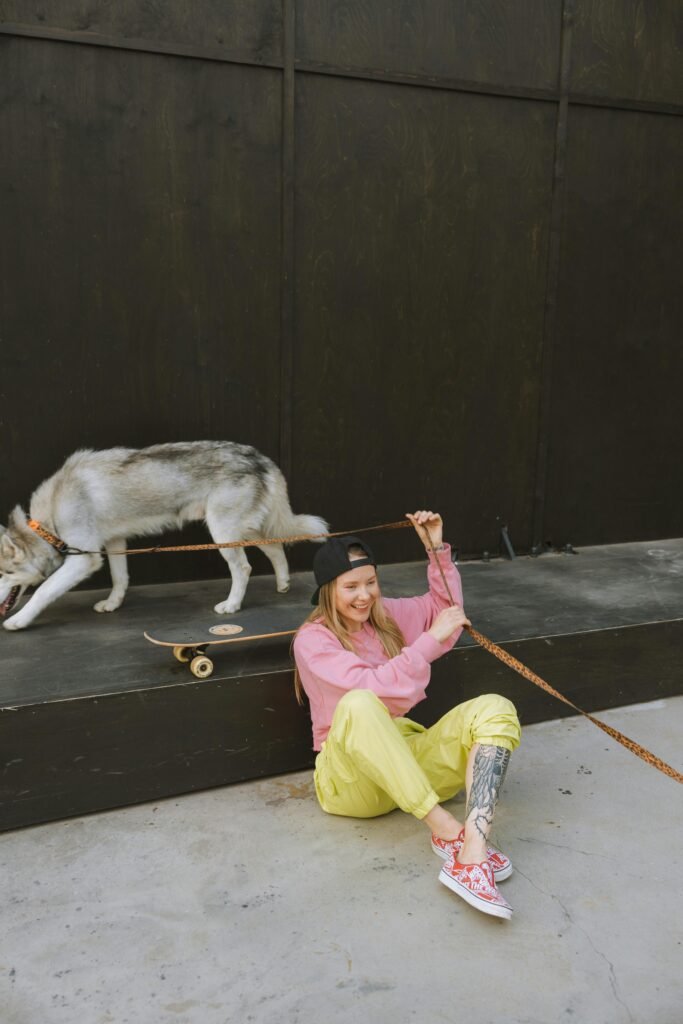
Maltese
Description
The Maltese is a small, glamorous dog breed known for its long, silky white coat and elegant appearance. They have a compact body, a rounded skull, and expressive dark eyes. Despite their small size, Maltese dogs exude confidence and grace. They are often seen as a symbol of luxury and have a long history as companion dogs.
Allergen Levels
Maltese dogs are often considered hypoallergenic due to their low-shedding coat. They have hair-like, silky fur that produces fewer allergens compared to breeds with traditional fur. However, it is important to note that no dog breed is completely hypoallergenic, and individual reactions may vary. Regular grooming and maintenance is still necessary to minimize potential allergens.
Temperament
Maltese dogs are known for their affectionate and playful nature. They thrive on human companionship and enjoy being the center of attention. Maltese dogs form strong bonds with their owners and can become anxious or stressed if left alone for long periods. Despite their small size, Maltese dogs can be bold and fearless, making them alert watchdogs.
Grooming Needs
The Maltese’s long, silky coat requires regular grooming to keep it looking its best. Daily brushing is necessary to prevent tangles and mats, as well as to remove loose hair. Many Maltese owners opt for professional grooming every 4-6 weeks to maintain the breed’s luxurious coat. Routine grooming also includes regular cleaning of the ears, nail trimming, and dental care.
Exercise Requirements
Despite their small size, Maltese dogs still require regular exercise to keep them physically and mentally stimulated. Daily walks and playtime indoors can help meet their exercise needs. Maltese dogs also enjoy learning tricks and participating in activities such as obedience and agility training. However, they are adaptable and can adjust well to apartment living or homes without a backyard.
Suitability for Allergy Sufferers
Maltese dogs are often recommended for individuals with allergies due to their hypoallergenic coat. Their low-shedding and low-dander coat help reduce the allergens present in the home. However, as with any hypoallergenic breed, individual reactions may vary. Spending time with a Maltese before bringing one home is important to ensure compatibility with allergies.
Other Considerations
Maltese dogs are known for their dainty and delicate appearance, but they have a spirited and lively personality. They can be sensitive to changes in their environment or routine, so they require a patient and gentle approach to training. Maltese dogs are not suited for rough play or homes with young children who may unintentionally harm them. With proper care and attention, Maltese dogs can be adoring and devoted companions.
Shih Tzu
Description
The Shih Tzu is a small, affectionate dog breed known for its luxurious coat and charming personality. They have a sturdy, compact body, a round head, and large, dark eyes. Shih Tzus have a long, flowing double coat that comes in various colors and patterns. They were originally bred to be companion dogs and have been adored throughout history for their regal appearance.
Allergen Levels
Shih Tzus are often considered hypoallergenic due to their low-shedding coat. They have hair-like, non-shedding fur that produces fewer allergens compared to breeds with traditional fur. However, it is important to note that no dog breed is completely hypoallergenic, and individual reactions may vary. Regular grooming and maintenance is still necessary to minimize potential allergens.
Temperament
Shih Tzus are known for their sweet and affectionate nature. They are often described as “big dogs in small bodies” due to their confident and independent personality. Shih Tzus form strong bonds with their owners and enjoy being the center of attention. They are generally good-natured and get along well with children and other pets.
Grooming Needs
The Shih Tzu’s long, flowing coat requires regular grooming to keep it in good condition. Daily brushing is necessary to prevent tangles and mats, as well as to remove loose hair. Many Shih Tzu owners opt for professional grooming every 4-6 weeks to maintain the breed’s luxurious coat. Routine grooming also includes regular cleaning of the ears, nail trimming, and dental care.
Exercise Requirements
Despite their small size, Shih Tzus still require regular exercise to keep them physically and mentally stimulated. Daily walks and playtime indoors can help meet their exercise needs. Shih Tzus also enjoy learning tricks and participating in activities such as obedience and agility training. However, they are adaptable and can adjust well to apartment living or homes without a backyard.
Suitability for Allergy Sufferers
Shih Tzus are often recommended for individuals with allergies due to their hypoallergenic coat. Their low-shedding and low-dander coat help reduce the allergens present in the home. However, as with any hypoallergenic breed, individual reactions may vary. Spending time with a Shih Tzu before bringing one home is important to ensure compatibility with allergies.
Other Considerations
Shih Tzus are known for their friendly and outgoing nature, but they can also be stubborn at times. They require consistent and positive reinforcement training methods. Shih Tzus are generally not suited for homes with very young children, as they can be easily injured due to their small size. With their regal demeanor and loving personality, Shih Tzus make wonderful companions for both individuals and families.
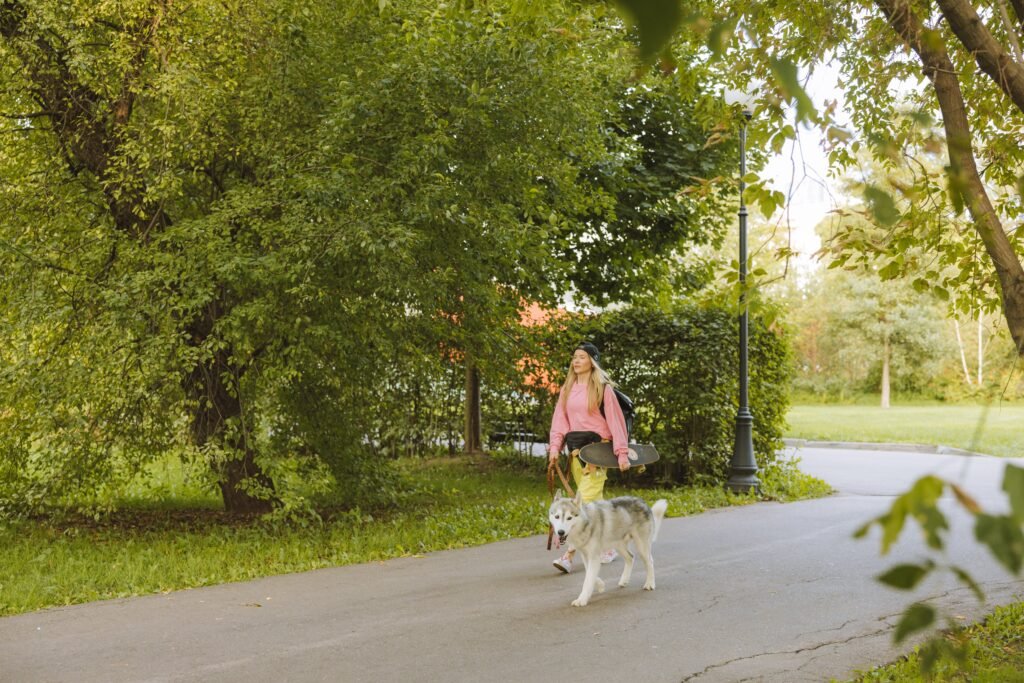
Yorkshire Terrier
Description
The Yorkshire Terrier, or Yorkie, is a small and glamorous dog breed known for its long silky coat and confident personality. They have a compact body, a flat skull, and dark sparkling eyes. Yorkies have a long history as companion dogs and have earned a reputation as a fashionable and elegant breed.
Allergen Levels
Yorkshire Terriers are often considered hypoallergenic due to their low-shedding coat. They have hair-like, non-shedding fur that produces fewer allergens compared to breeds with traditional fur. However, it is important to note that no dog breed is completely hypoallergenic, and individual reactions may vary. Regular grooming and maintenance is still necessary to minimize potential allergens.
Temperament
Yorkshire Terriers are known for their confident and bold personality, despite their small size. They are often described as “big dogs in small bodies” due to their spirited and intelligent nature. Yorkies form strong bonds with their owners and can be fiercely loyal and protective. They are generally good with children and other pets, but early socialization is important to ensure proper behavior.
Grooming Needs
The Yorkshire Terrier’s long, luxurious coat requires regular grooming to keep it in good condition. Daily brushing is necessary to prevent tangles and mats, as well as to remove loose hair. Many Yorkie owners opt for professional grooming every 4-6 weeks to maintain the breed’s stylish appearance. Routine grooming also includes regular cleaning of the ears, nail trimming, and dental care.
Exercise Requirements
Despite their small size, Yorkshire Terriers still require regular exercise to keep them physically and mentally stimulated. Daily walks and playtime indoors can help meet their exercise needs. Yorkies also enjoy learning tricks and participating in activities such as obedience and agility training. However, they are adaptable and can adjust well to apartment living or homes without a backyard.
Suitability for Allergy Sufferers
Yorkshire Terriers are often recommended for individuals with allergies due to their hypoallergenic coat. Their low-shedding and low-dander coat help reduce the allergens present in the home. However, as with any hypoallergenic breed, individual reactions may vary. Spending time with a Yorkshire Terrier before bringing one home is important to ensure compatibility with allergies.
Other Considerations
Yorkshire Terriers are known for their big personalities and can be stubborn at times. They require consistent and patient training methods. Yorkies may not do well in homes with very young children, as their small size can make them more prone to injury. It is important to provide them with mental stimulation and socialization from an early age to prevent behavioral issues. With their confident demeanor and glamorous appearance, Yorkshire Terriers make delightful companions for both individuals and families.
Schnauzer
Description
The Schnauzer is a medium-sized dog breed known for its distinctive bearded face, bushy eyebrows, and wiry coat. They come in three sizes – miniature, standard, and giant. Schnauzers have a square build and a strong, confident stance. They are often described as “alert and spirited,” with a friendly and intelligent nature.
Allergen Levels
Schnauzers are often recommended for individuals with allergies due to their low-shedding coat. They have a hard, wiry outer coat and a soft undercoat that produces fewer allergens compared to breeds with traditional fur. However, it is important to note that no dog breed is completely hypoallergenic, and individual reactions may vary. Regular grooming and maintenance is still necessary to minimize potential allergens.
Temperament
Schnauzers are known for their alertness, intelligence, and loyalty. They are often described as “big dogs in small bodies” due to their confident and feisty personality. Schnauzers are highly trainable and enjoy learning new tricks and tasks. They form strong bonds with their families and can be protective, making them good watchdogs.
Grooming Needs
The Schnauzer’s wiry coat requires regular grooming to keep it looking its best. Regular brushing and hand-stripping are necessary to maintain the texture and quality of their coat. Many Schnauzer owners opt for professional grooming every 4-6 weeks to maintain the breed’s distinctive appearance. Routine grooming also includes regular cleaning of the ears, nail trimming, and dental care.
Exercise Requirements
Schnauzers are an active breed that requires regular exercise to keep them physically and mentally stimulated. Daily walks and playtime outdoors can help meet their exercise needs. Schnauzers also enjoy activities such as obedience training, agility, and even herding trials. Mental stimulation is particularly important for this intelligent breed.
Suitability for Allergy Sufferers
Schnauzers are often recommended for individuals with allergies due to their low-shedding coat. Their wiry coat produces fewer allergens compared to breeds with traditional fur. However, as with any hypoallergenic breed, individual reactions may vary. Spending time with a Schnauzer before bringing one home is important to ensure compatibility with allergies.
Other Considerations
Schnauzers are known to be intelligent and energetic dogs that require mental stimulation and regular exercise. They thrive in environments where they have tasks and challenges to keep their minds engaged. Schnauzers are generally good with children and other pets when properly socialized. Obedience training and early socialization are important to ensure they become well-behaved and well-adjusted companions. With their distinctive appearance and spirited personality, Schnauzers make loyal and affectionate family dogs.
Portuguese Water Dog
Description
The Portuguese Water Dog is a medium-sized, athletic dog breed known for its love of water and working heritage. They have a strong, muscular build, a broad head, and expressive eyes. Portuguese Water Dogs have a curly or wavy coat that can be black, brown, white, or a combination of these colors. They were originally bred for fishing and were highly valued for their swimming abilities and intelligence.
Allergen Levels
Portuguese Water Dogs are often recommended for individuals with allergies due to their low-shedding and low-dander coat. They have hair-like, non-shedding fur that produces fewer allergens compared to breeds with traditional fur. However, it is important to note that no dog breed is completely hypoallergenic, and individual reactions may vary. Regular grooming and maintenance is still necessary to minimize potential allergens.
Temperament
Portuguese Water Dogs are known for their friendly and outgoing nature. They are often described as “happy-go-lucky” and love to be in the company of their families. Portuguese Water Dogs are intelligent, trainable, and excel in various activities such as obedience, agility, and even water sports. They are known to be good with children and other pets, making them a popular choice for active families.
Grooming Needs
The Portuguese Water Dog’s curly or wavy coat requires regular grooming to prevent matting and maintain its appearance. Regular brushing and professional grooming every 4-6 weeks are recommended to keep their coat in good condition. Routine grooming also includes regular cleaning of the ears, nail trimming, and dental care.
Exercise Requirements
Portuguese Water Dogs are an active and energetic breed that requires regular exercise to keep them physically and mentally stimulated. They love water activities and have a natural affinity for swimming. Daily walks, playtime, and engaging in activities such as agility and obedience training are important to meet their exercise needs. They thrive in environments that provide them with mental challenges and physical outlets for their energy.
Suitability for Allergy Sufferers
Portuguese Water Dogs are often recommended for individuals with allergies due to their low-shedding and low-dander coat. Their non-shedding fur helps reduce the allergens present in the home. However, as with any hypoallergenic breed, individual reactions may vary. Spending time with a Portuguese Water Dog before bringing one home is important to ensure compatibility with allergies.
Other Considerations
Portuguese Water Dogs are intelligent and independent thinkers that require proper training and socialization from an early age. They can be strong-willed at times and benefit from a consistent and positive reinforcement approach to training. Portuguese Water Dogs are generally good with children and other pets, but early socialization is important to ensure proper behavior. With their working heritage and love of water, Portuguese Water Dogs make active and loyal companions for individuals and families alike.
Soft Coated Wheaten Terrier
Description
The Soft Coated Wheaten Terrier is a medium-sized dog breed known for its silky, soft coat and friendly nature. They have a square build, a rectangular head, and dark, expressive eyes. Wheaten Terriers have a soft, flowing coat that ranges in shade from pale beige to golden red. They are often described as “happy dogs” due to their cheerful and outgoing personality.
Allergen Levels
Soft Coated Wheaten Terriers are often considered hypoallergenic due to their low-shedding coat. They have a soft, single-layered coat that produces fewer allergens compared to breeds with traditional fur. However, it is important to note that no dog breed is completely hypoallergenic, and individual reactions may vary. Regular grooming and maintenance is still necessary to minimize potential allergens.
Temperament
Soft Coated Wheaten Terriers are known for their friendly and affectionate nature. They form strong bonds with their families and are typically good with children and other pets. Wheaten Terriers are often described as “people dogs” and love to be in the company of their loved ones. They are intelligent and trainable, although they can sometimes have a stubborn streak.
Grooming Needs
The Soft Coated Wheaten Terrier’s soft, flowing coat requires regular grooming to keep it in good condition. Daily brushing is necessary to prevent tangles and mats, as well as to remove loose hair. Many Wheaten Terrier owners opt for professional grooming every 4-6 weeks to maintain the breed’s elegant appearance. Routine grooming also includes regular cleaning of the ears, nail trimming, and dental care.
Exercise Requirements
Soft Coated Wheaten Terriers are an energetic breed that requires regular exercise to keep them physically and mentally stimulated. Daily walks, playtime, and engaging in activities such as agility or obedience training are important to meet their exercise needs. They enjoy outdoor adventures and love to explore their surroundings. Soft Coated Wheaten Terriers are adaptable and can adjust well to various living situations.
Suitability for Allergy Sufferers
Soft Coated Wheaten Terriers are often recommended for individuals with allergies due to their low-shedding coat. Their soft, single-layered coat helps reduce the allergens present in the home. However, as with any hypoallergenic breed, individual reactions may vary. Spending time with a Soft Coated Wheaten Terrier before bringing one home is important to ensure compatibility with allergies.
Other Considerations
Soft Coated Wheaten Terriers are known to be sociable and enjoy being around people and other pets. They require proper socialization from an early age to ensure they become well-mannered and well-adjusted dogs. Wheaten Terriers can be a bit stubborn at times, so consistent and patient training methods are important. They are loyal and affectionate companions that bring joy and love to their families’ lives.

